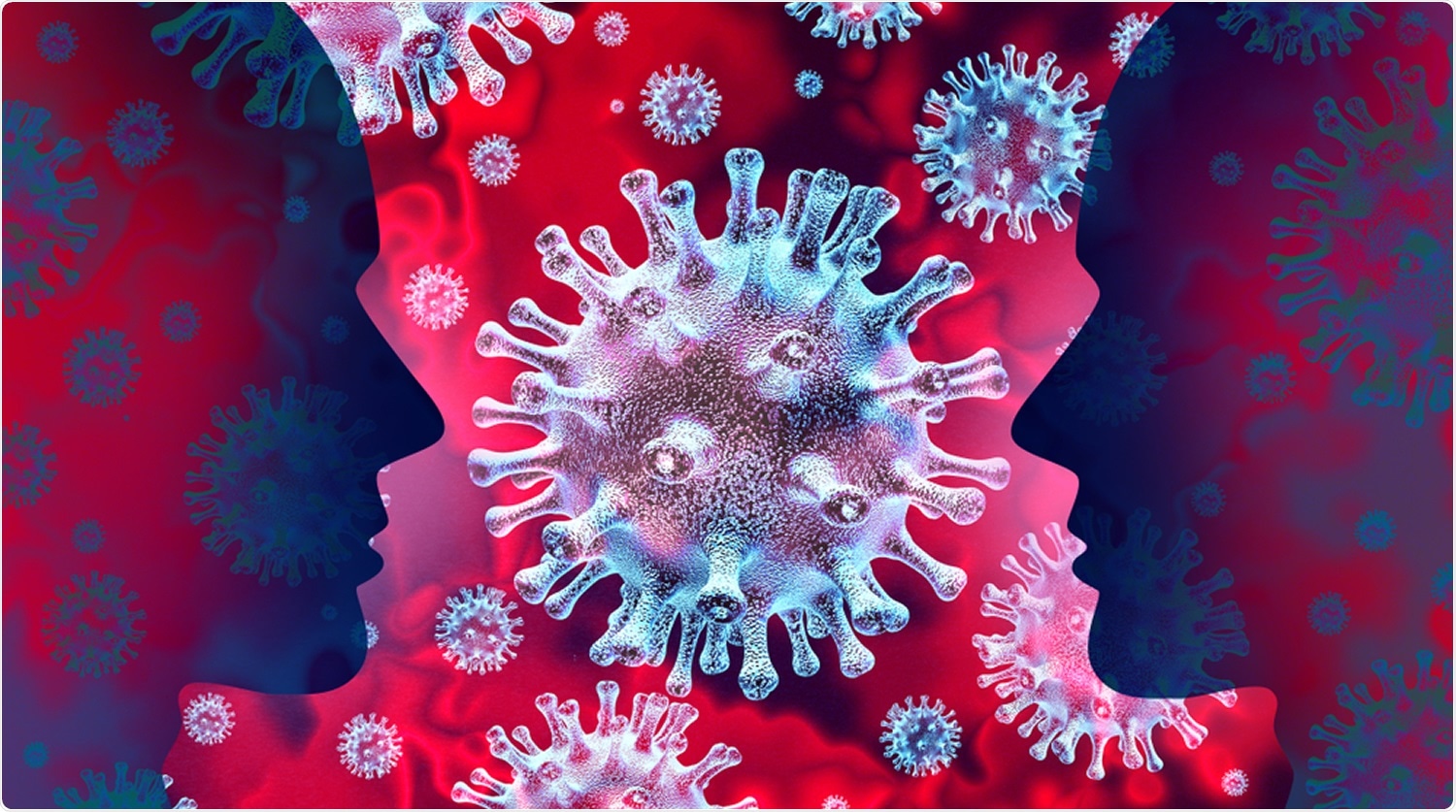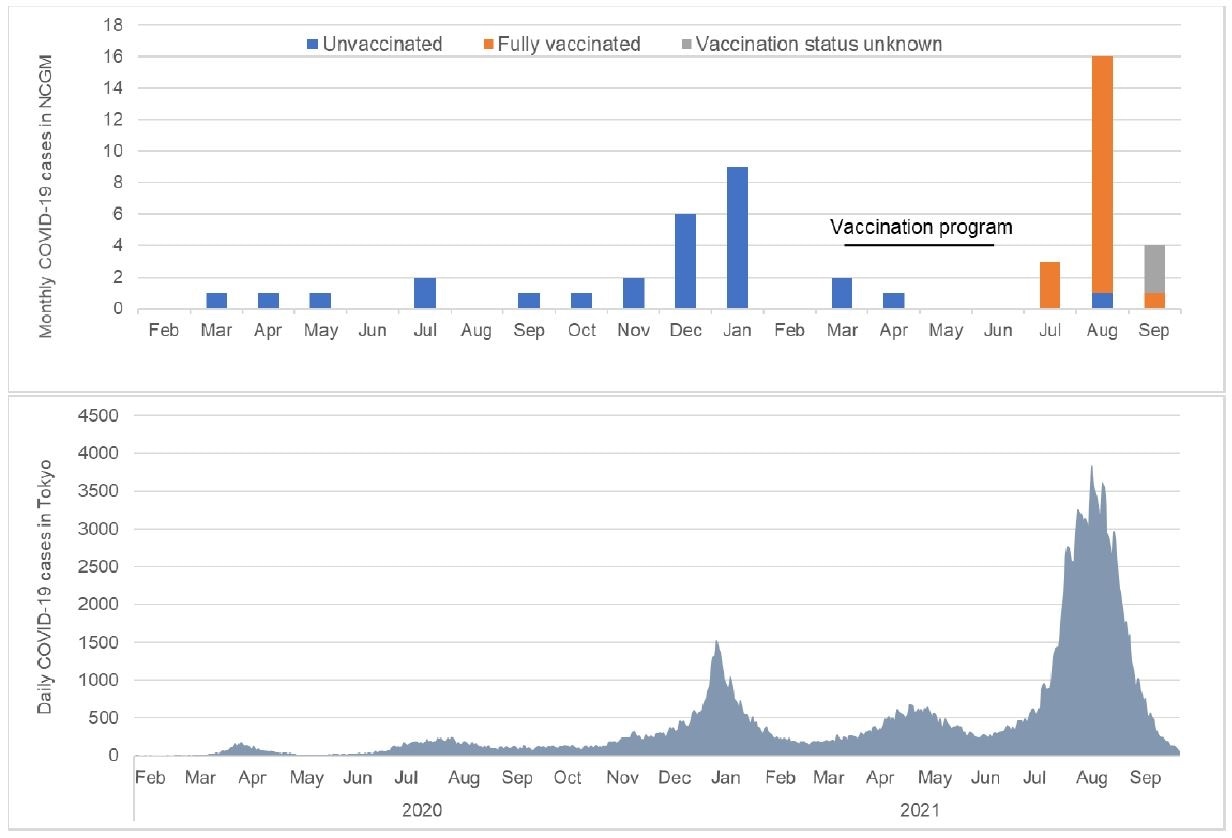Japanese study on SARS-CoV-2 breakthrough infections
The current coronavirus disease 2019 (COVID-19) pandemic has claimed more than 4.9 million lives worldwide. The causal agent of this pandemic is an RNA virus, namely, severe acute respiratory syndrome coronavirus 2 (SARS-CoV-2). Therefore, scientists believe that rapid COVID-19 vaccination across the world's population is one of the most effective tools to reduce the mortality rate and ultimately contain the pandemic.
At present, many vaccines have received emergency use authorization (EUA) from various global regulatory bodies, and, subsequently, vaccination programs have commenced in many parts of the world.

Background
Clinical trials revealed that the mRNA-based vaccines are highly effective against SARS-CoV-2. However, many reports are surfacing about a surge in SARS-CoV-2 infection in countries with high coverage of vaccination programs. This occurrence has been attributed to the emergence of SARS-CoV-2 variants. Some of the SARS-CoV-2 variants of concern (e.g., Delta) can escape immune responses elicited via vaccination or natural infection. All the available COVID-19 vaccines have been developed against the spike protein of the original SARS-CoV-2 strain that was first reported from Wuhan, China in 2019. Another concern about the vaccines has been the waning of immune responses over time.
At present, limited epidemiological evidence is available regarding the role of vaccine-induced immunogenicity against variants of concern. A previous study that included vaccinated healthcare workers during the Alpha (B.1.1.7) variant epidemic reported breakthrough infection. Another study reported breakthrough infections concerning the Delta variant, which showed greater resistance to the currently available vaccines than the Alpha variant.
Japan started vaccination programs in mid-February 2021, and the healthcare workers were among the first to receive the COVID-19 mRNA vaccine, namely, BNT162b2, developed by Pfizer-BioNTech. Subsequently, Japan experienced two large COVID-19 epidemic waves, the Alpha variant (April and May 2021) and the Delta variant (from July to September).
A New Study
Researchers evaluated SARS-CoV-2 incidence in Japan regarding the timing of the vaccination program and surge in COVID-19 cases among the staff of a large referral hospital in Tokyo. This study is posted to the medRxiv* preprint server.
Scientists compared the levels of pre-infection neutralizing antibodies against the SARS-CoV-2 wild-type, Alpha, and Delta strains between breakthrough infection cases. In this study, during the Delta epidemic, researchers followed 2,473 fully vaccinated staff for breakthrough infection.
Main Findings
The present study has shown that among the vaccinated staff, many breakthrough infection cases were found during the most significant epidemic wave caused by the Delta variant.
Similarly, previous studies have indicated that the effectiveness of the COVID-19 vaccine, against the Delta strain, after four months of vaccination was 53% in the U.S. and 35.1% in Qatar.
These studies indicated that absolute vaccination of the staff associated with hospitals could not eliminate the Delta variant's risk of infection. However, it must be noted that vaccination has significantly reduced the number of hospitalizations among the staff.

Researchers observed that pre-infection neutralizing antibody titers did not significantly differ between breakthrough infection cases and matched controls. This finding does not support previous studies from Israel and Vietnam that reported significantly reduced neutralizing antibody titers among those with breakthrough infection.
There was no evidence of clustered infection in the hospital, which confirmed that the occurrences of breakthrough infection were independent of timings and departments. This result is in line with previous reports that stated infection among the staff primarily occurred outside the hospital, i.e., household, community, etc.
According to the current study, the neutralizing capacity of the antibodies present in the serum of vaccinated individuals against the Alpha and Delta strain was much lower than the original strain, regardless of breakthrough infection. This finding is consistent with previous studies showing lower vaccine efficiency, predominantly against SARS-CoV-2 variants of concern.
This study showed that fully vaccinated staff did not contract SARS-CoV-2 infection during the peak of the Alpha variant epidemic two months after vaccination. This demonstrated high vaccine efficacy against the Alpha strain.
Breakthrough infection was first observed from July to August 2021, which might be due to the subsequent waning of neutralizing capacity. Also, the Delta variant is known to be a vaccine-resistant variant. This study has also shown that completely vaccinated COVID-19 patients experienced no or only mild symptoms.
Conclusion
This study has certain limitations, including the measurement of antibody levels using samples collected 5 to 10 weeks before the infection. In addition, the delay in the analysis could have resulted in the waning of antibodies over time.
Additionally, in the context of breakthrough infections, data on the type of virus were available only for five cases, and all were Delta variants.
Scientists concluded that pre-infection neutralizing antibodies against the SARS-CoV-2 original strain, Alpha, and Delta variants did not differ between healthcare workers who experienced breakthrough infection.
*Important Notice
medRxiv publishes preliminary scientific reports that are not peer-reviewed and, therefore, should not be regarded as conclusive, guide clinical practice/health-related behavior, or treated as established information.
- Yamamoto, S. et al. COVID-19 breakthrough infections and pre-infection neutralizing antibody. medRxiv 2021.10.20.21265301; doi: https://doi.org/10.1101/2021.10.20.21265301, https://www.medrxiv.org/content/10.1101/2021.10.20.21265301v1
Posted in: Men's Health News | Medical Research News | Women's Health News | Disease/Infection News | Healthcare News
Tags: Antibodies, Antibody, Coronavirus, Coronavirus Disease COVID-19, Efficacy, Global Health, Healthcare, Hospital, Mortality, Pandemic, Protein, Respiratory, RNA, SARS, SARS-CoV-2, Severe Acute Respiratory, Severe Acute Respiratory Syndrome, Spike Protein, Syndrome, Vaccine, Virus

Written by
Dr. Priyom Bose
Priyom holds a Ph.D. in Plant Biology and Biotechnology from the University of Madras, India. She is an active researcher and an experienced science writer. Priyom has also co-authored several original research articles that have been published in reputed peer-reviewed journals. She is also an avid reader and an amateur photographer.
Source: Read Full Article
